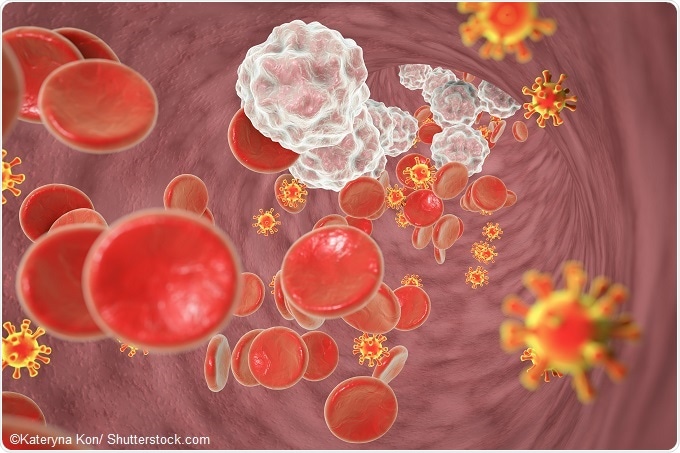HIV, which is often diagnosed late, leaves people vulnerable to other diseases by ravaging the immune system. HIV will not directly cause death, but, will expose the person’s body to various dangerous bacterial infections like tuberculosis or pneumonia and cryptococcal meningitis causing fungi.
Even though the drugs used in the antiretroviral therapy might restore the immune system, beginning this therapy involves huge risk. If the immune system identifies any infections all of any time, it may launch strong attacks, becoming harmful to the body. For instance, such attacks caused in the brain can even be fatal.

Image: 3D animation of HIV infection and CD4 cells.
The trial which aimed at addressing this issue sampled 1,805 patients, above five years old, from Uganda, Zimbabwe, Malawi, and Kenya.
To treat the opportunistic infections, a combination of drugs was provided to the patients in the beginning of the HIV therapy. Along with the standard antiretroviral medication, antibiotics were included in their treatment and was given to the patients with a CD count less than 100.
A CD count is used in measuring the health of the immune system. In comparison with the patients who have a CD count over 100, patients with a count below 50 have a 6 times higher chance of death within 24 weeks.
Usually, within weeks of diagnosis, over 10 patients would have passed away. But, according to the study, the preventative therapy led to the fall of deaths by 27%. It also decreased tuberculosis by 28%, cryptococcal disease by 62% and candidiasis by 58%. A reduction in hospitalization by 17% was also seen. As a whole, lives of 3 patients among 100 treated were saved.
Prof. Diana Gibb, an author of the study from the UK's MRC Clinical Trials Unit commented that the therapy, which has huge potential, is a relatively simple additional intervention. She also added that the approach was "very cost-effective throughout Africa" and "we think this should become part of guidelines".
When compared with the standard treatment, the medicine costs $5 extra per patient. Expensive tests for each infection separately were not needed as all the drugs are prescribed to every patient.
As per the comments of Dr. Carl Dieffenbach, the director of the division of Aids within the US National Institutes of Health, the idea brought him back to on earlier times, when treating opportunistic infections in HIV/AIDS patient was given more priority.
"I think it's the best possible medicine you could be doing, the challenge for health departments around the world is they've largely felt they could get out of dealing with the opportunistic infections. They can't neglect this population of patients, it's not enough to just put them on antiretroviral therapy," he added.
During the trial, a number of patients appeared healthy even after being diagnosed with HIV. 50% of them did not even manifest any symptoms in spite of their average CD4 count being just 36.
Drs. Nathan Ford and Meg Doherty, from the World Health Organization, said that there exists a need for a renewed focus on responding to the needs of the patients with a more severe HIV infection, who are at a greater risk of illness as well as death.
Sources: